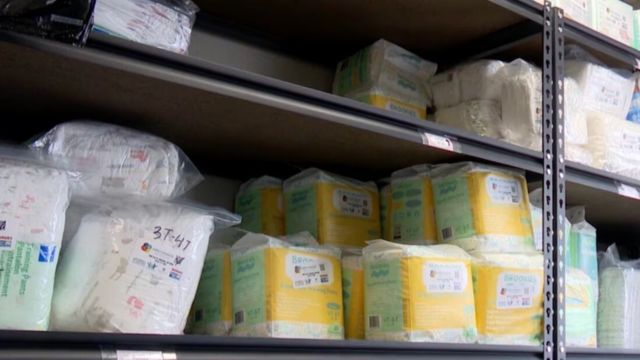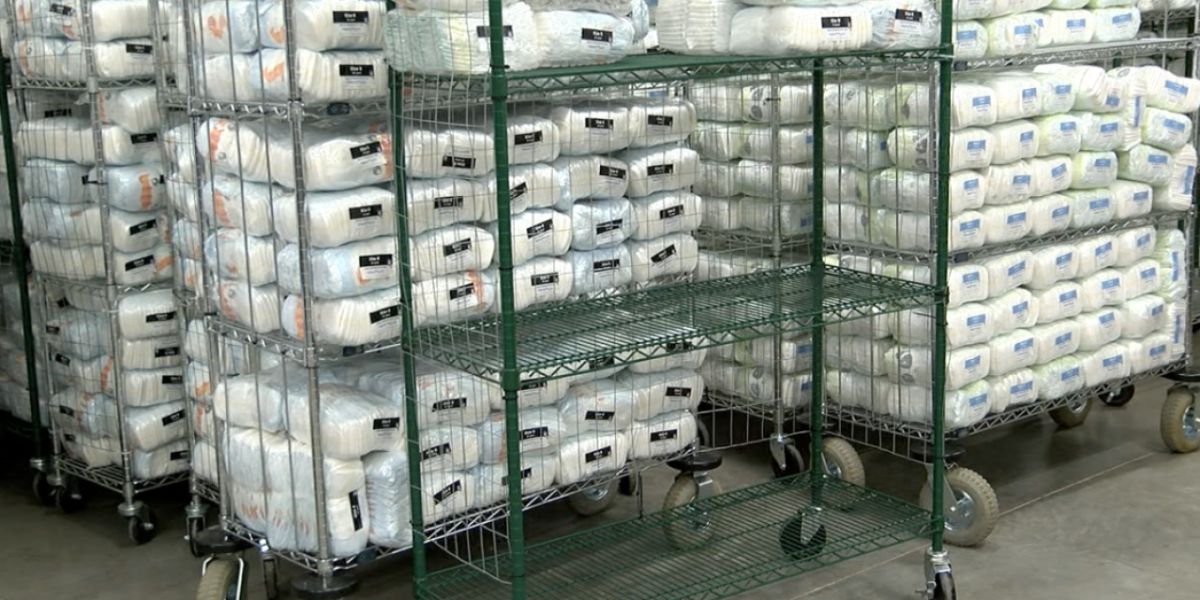One senator wants to lower the luxury tax that Missouri parents presently pay when purchasing diapers for their infants in order to save those families money.
The plan introduced by State Representative Wendy Hausman would reduce the so-called “pink tax,” a luxury tax on goods that women usually purchase, such as period products and infant necessities. The sales tax on diapers and other items would be lowered by 3% under her measure.
Diapers and feminine hygiene products are taxed as luxury items in 21 states, including Missouri. Diapers and feminine hygiene supplies are subject to the 4.225% luxury rate imposed by the state.
Families spend roughly $1,000 year on diapers for each child, according to the American Academy of Pediatrics.
Families would save $30 annually for each child if that expense were cut by 3%.
Every year, similar legislation are submitted, but due to the possible financial loss, they typically never even reach a hearing stage.
According to the bill’s fiscal analysis, this plan would result in a loss of tax revenue for the state of between $32 million and $36 million; local governments would not be impacted.
During a Tuesday morning hearing on her measure, Hausman stated, “This will allow for the most vulnerable individuals in our state — being seniors that use incontinence products, mothers, and children — who are going to be the ones who are going to be using these products.”

A 3% reduction in that cost would save families $30 a year for each child.
Similar bills are introduced year, but they usually never even make it to the hearing stage because of the potential financial loss.
The bill’s fiscal analysis estimates that this approach would cost the state between $32 million and $36 million in lost tax revenue, with no effect on local governments.
At a hearing on her legislation on Tuesday morning, Hausman said, “This will allow for the most vulnerable individuals in our state — being seniors that use incontinence products, mothers, and children — who are going to be the ones who are going to be using these products.”
“We are also seeing those higher-income families that fall through the cracks, that aren’t going to receive assistance to help them buy food or supplies,” Litteken stated. “That’s where we’re filling that need. Everybody needs help sometimes.”
This occurs in a year when tax cuts on income and capital gains are top priorities for the supermajority Republican party.
A law that would do away with capital gains taxes is almost complete, but nothing is quite there yet. People would be able to keep 100% of the proceeds from the sale of assets like real estate or cars.
There are other bills in the legislature that would reduce income and personal property taxes.
One idea would substitute sales taxes on currently untaxed services, such haircuts or real estate transactions, for income tax revenue.
Over half of Missouri’s public revenue comes from income taxes. Missouri voters would still need to approve this law before it could take effect, even if it were to pass both the House and the Senate.
The remaining funds are known as general revenue; additional funds have already been allotted to various state departments. Missouri’s general revenue is derived from income taxes to the tune of about 60%.
This information has been sourced from kctv5.







Leave a Comment